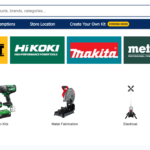The pharmaceutical industry thrives on precision — the right message must reach the right healthcare professionals at the right time. Among the most critical medical specialists, pulmonologists play a pivotal role in diagnosing and treating respiratory disorders such as asthma, COPD, sleep apnea, and pulmonary fibrosis.
In this landscape, pharma brands aiming to promote respiratory drugs, inhalers, and diagnostic tools rely heavily on Pulmonologist Email Databases to communicate effectively. These curated datasets serve as powerful marketing assets, enabling direct, personalized outreach to verified pulmonology specialists worldwide.
By leveraging a well-structured and compliant Pulmonologist Email List, pharmaceutical marketers can foster trust, share medical insights, and introduce new treatments in a professional, data-driven manner.
1. Why Pulmonologist Email Databases Are Essential for Pharma Marketing
In the past, pharma companies depended heavily on in-person visits, medical conferences, and cold calling to promote their products. While these methods still hold value, the healthcare industry’s digital transformation has shifted focus toward email marketing — a compliant, scalable, and measurable channel.
A Pulmonologist Email Database acts as the foundation for this transformation by providing:
- Verified contact data (email, phone, hospital, specialization, location)
- Up-to-date professional details (experience, license number, prescribing authority)
- Segmentation options (geography, practice type, treatment area, patient volume)
These insights enable pharma marketers to send highly personalized content and ensure their communication resonates with each recipient’s practice needs.
2. Targeted Outreach for Product Launches
Launching a new drug or respiratory therapy requires swift and targeted communication. Instead of broadcasting messages broadly, pharma marketers can use Pulmonologist Email Databases to identify specialists most likely to prescribe the drug and send them educational resources, clinical trial summaries, and product benefits.
For instance, when introducing a new COPD inhaler, a marketer can segment the database by pulmonologists who specialize in chronic lung diseases and work in high-volume clinics. This allows precise targeting, faster awareness, and quicker adoption of the product in the market.
3. Building Awareness Through Educational Campaigns
Pharma brands increasingly recognize that education-driven marketing builds trust far better than direct selling. Using Pulmonologist Email Lists, marketers can send:
- Clinical study outcomes and peer-reviewed research papers
- Safety and efficacy comparisons between competing drugs
- Infographics on treatment advancements
- Continuing Medical Education (CME) invitations
This approach positions the company as a knowledge partner, not merely a vendor — enhancing credibility and long-term engagement.
4. Strengthening Physician Relationships with Personalization
Personalization goes beyond addressing a doctor by name. With database segmentation, pharma companies can tailor messages based on practice type, hospital affiliation, patient demographics, or prescription behavior.
For example:
- Pulmonologists in academic institutions might receive research collaboration invites.
- Private practitioners could receive patient education materials or sample trial offers.
- Hospital-based specialists may be interested in bulk drug supply information.
Such personalization improves engagement rates and ensures that communications feel relevant, timely, and useful.
5. Enhancing Sales Through Data-Driven Insights
Modern CRM and marketing automation systems integrate seamlessly with Pulmonologist Email Databases. This allows pharma marketers to:
- Track open rates, clicks, and conversions
- Identify high-engagement pulmonologists for deeper outreach
- Score leads based on activity and interest level
- Measure campaign ROI in real-time
This data-driven approach transforms marketing into a scientifically measurable process — not guesswork.
Table: Top Use Cases of Pulmonologist Email Databases for Pharma Companies
| Use Case | Objective | Outcome |
| Drug Launch Campaigns | Introduce new respiratory medications to target specialists | Accelerates market adoption |
| Clinical Education | Share latest research and trial outcomes | Builds credibility and trust |
| Event Promotion | Invite pulmonologists to webinars or conferences | Strengthens professional relationships |
| Market Expansion | Identify and connect with new regional specialists | Improves brand visibility |
| Lead Nurturing | Send follow-up communications based on engagement | Increases prescribing likelihood |
6. Supporting Multi-Channel Marketing
While email remains central, a Pulmonologist Database can also power multi-channel campaigns by integrating with social media, programmatic ads, and direct sales channels. Pharma brands can use the same segmented data to:
- Run LinkedIn campaigns targeting verified pulmonologists
- Send SMS reminders for events or webinars
- Enable sales reps to follow up with leads directly
By maintaining consistent messaging across all touchpoints, companies ensure a unified and professional brand experience.
7. Ensuring Compliance and Ethical Communication
The pharmaceutical sector operates under strict data privacy and communication regulations, including HIPAA, CAN-SPAM, GDPR, and local data laws.
A trusted Pulmonologist Email Database ensures compliance by including only opt-in, verified, and ethically sourced contacts.
Reputable data providers regularly cleanse their lists, remove inactive or outdated contacts, and ensure all data follows permission-based marketing principles. This compliance not only prevents penalties but also protects brand reputation.
8. Measuring Performance and ROI
The success of email marketing campaigns targeting pulmonologists can be measured through key metrics like:
- Delivery rate – to ensure data validity
- Open rate & CTR – to evaluate engagement levels
- Conversion rate – to track actual prescription or meeting outcomes
- Unsubscribe rate – to assess message relevance
By continuously analyzing these KPIs, pharma marketers can refine subject lines, adjust content formats, and optimize follow-up frequency to achieve higher conversion efficiency.
9. Real-World Example: Driving Product Adoption
Consider a pharma company launching an advanced nebulizer for asthma patients. Instead of mass advertising, the marketing team used a segmented Pulmonologist Email Database covering 12,000 verified specialists across the U.S. and Europe.
The campaign shared:
- A short educational video on device functionality
- Clinical trial results demonstrating 20% improved patient outcomes
- A sign-up link for free product samples
Within 45 days, the company achieved:
- 48% open rate
- 22% click-through rate
- 700+ sample requests from verified pulmonologists
This case illustrates the measurable power of targeted email campaigns backed by accurate pulmonologist data.
10. Long-Term Value Beyond Promotion
Beyond short-term sales goals, pharma companies use pulmonologist databases to maintain ongoing relationships. Regular updates on new formulations, patient case studies, and medical research help sustain engagement and keep the brand top of mind among respiratory care professionals.
Conclusion
For pharmaceutical marketers operating in the respiratory and pulmonary segments, a Pulmonologist Email Database is far more than a contact list — it’s a strategic growth asset. It allows precision targeting, compliance-driven outreach, and meaningful engagement with the very specialists who influence prescribing decisions.
Whether it’s launching new treatments, sharing medical research, or nurturing long-term trust, such databases empower pharma brands to achieve measurable impact with efficiency and integrity.
Ultimately, a well-maintained Pulmonologist Mailing List not only drives product promotion but also strengthens the bridge between pharma innovation and patient care — the true goal of every healthcare marketer.








